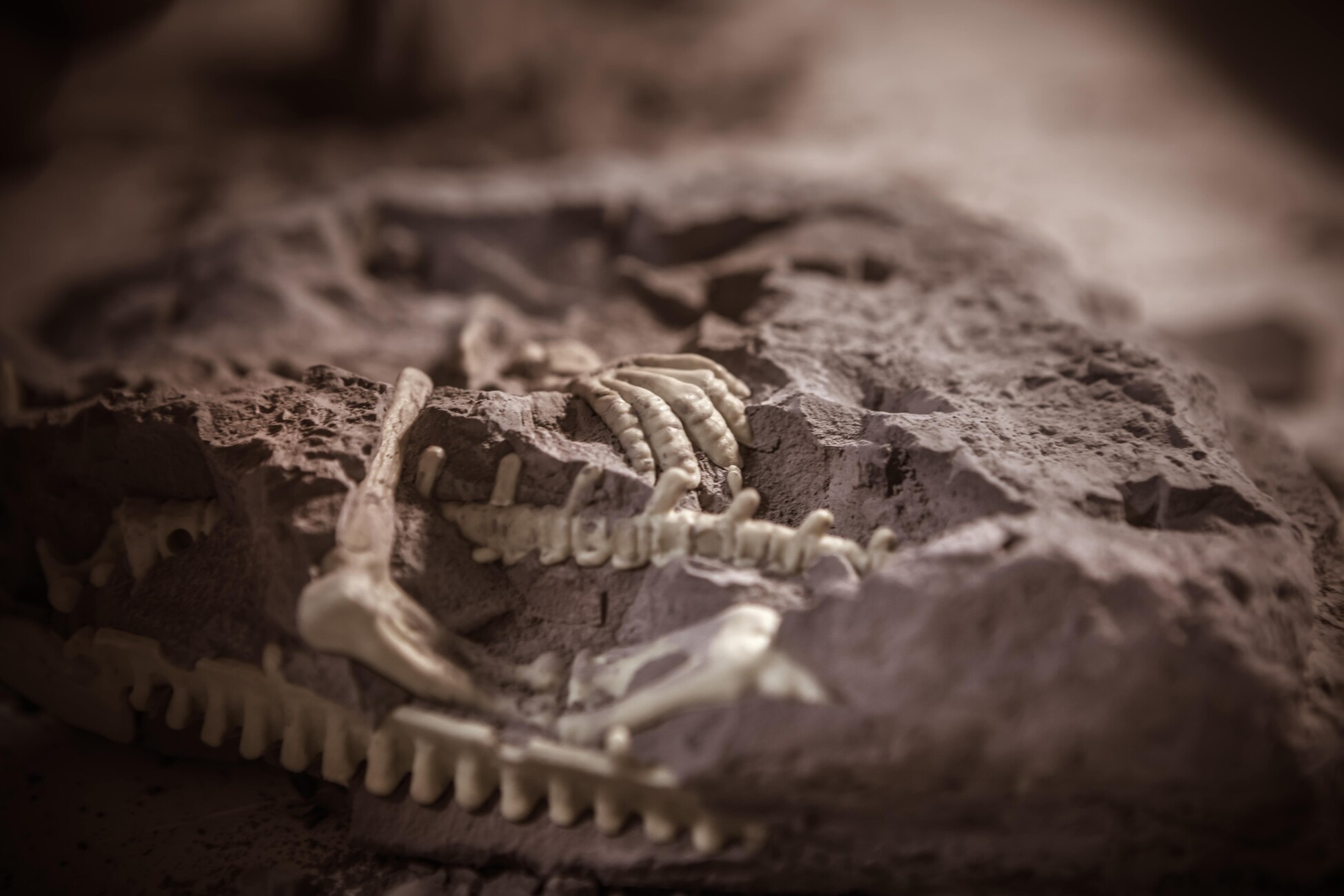
Archaeology
Archaeology is the study of human history and prehistory through the excavation and analysis of artefacts, structures, and other physical remains.
Archaeology is the study of human history and prehistory through the excavation and analysis of... View more
Ancient burial sites in Dorset reveal Iron Age Britons’ adaptation to Roman influence
-
Ancient burial sites in Dorset reveal Iron Age Britons’ adaptation to Roman influence
Archaeologists from Bournemouth University (BU) have unearthed significant <a class="wpg-linkify wpg-tooltip" title="
Artifact
An artifact or artefact (British English) refers to any portable object or material that has been created, modified, or used by humans. It is the basic “unit” of archaeological analysis. Artifacts can vary widely in terms of size, material, and purpose. They can include tools, pottery, jewelry, weapons, clothing, and more. These diverse forms may at times be mistaken for ecofacts and features, with all three often coexisting within archaeological sites. Archaeologists study artifacts to learn about the technological advancements,” href=”https://archaeologymag.com/encyclopedia/artifact/” target=”_blank”>artifacts and human remains at Winterborne Kingston. The discoveries, including Roman-style wine cups and flagons, highlight how the Roman conquest in CE 43 influenced local customs and daily life, particularly in terms of burial practices and the adoption of Roman goods.
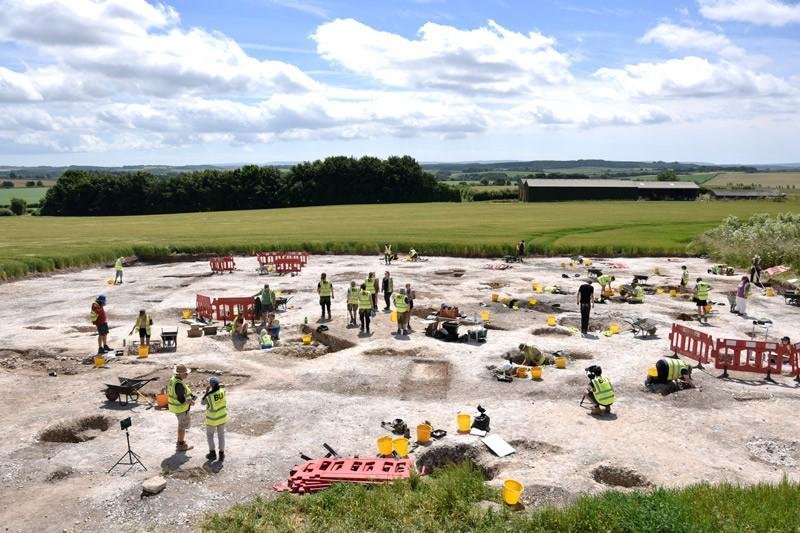
Archaeologists from Bournemouth University have unearthed human remains and artifacts at Winterborne Kingsto. nCredit: Bournemouth University For over fifteen years, BU staff and students have been excavating Iron Age settlements at this Dorset site. While previous finds had dated back to before the Roman arrival, these latest discoveries mark the first time researchers can delve into the lives of those who lived through the invasion.
Dr. Miles Russell, Principal Academic in Archaeology at BU, said, “Being incorporated into the Roman Empire was one of the biggest societal changes in British history. We wanted to find the farmsteads and burials that tell us what life was like for ordinary Britons and what happened to them at the time – did they become part of the wider empire, did they resist, or did they carry on living as they had always done? So finding a site like this was critical.”
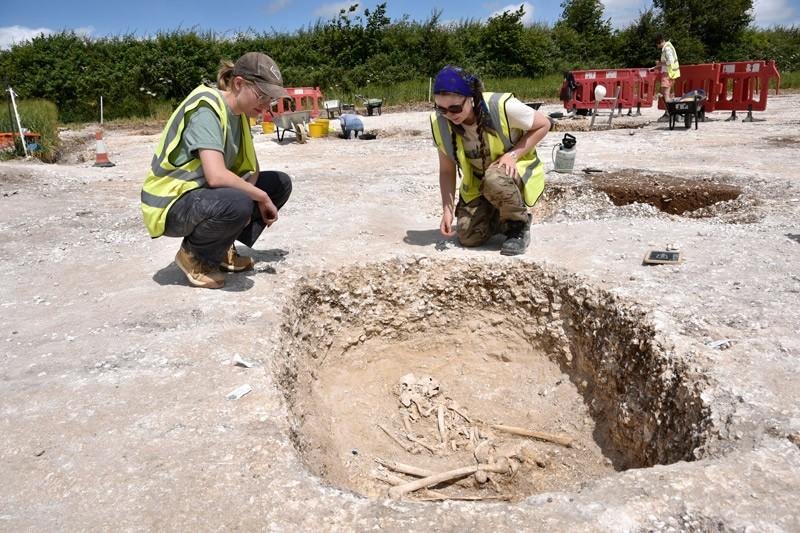
Students study the remains of a woman who died in her thirties and was buried in the traditional local style. Credit: Bournemouth University The excavation revealed three particularly telling graves. The first contained the remains of two women in their thirties, buried with Roman-style wine flagons and goblets. These women were interred in the traditional Iron Age manner—on their sides in a fetal position—indicating that while the Romans had introduced new customs, the local population was selective about which aspects they adopted. “It’s clear that the local people are not becoming Roman in a big way, merely taking things from the Romans that enhance and improve their life, in this instance wine,” Dr. Russell explained.
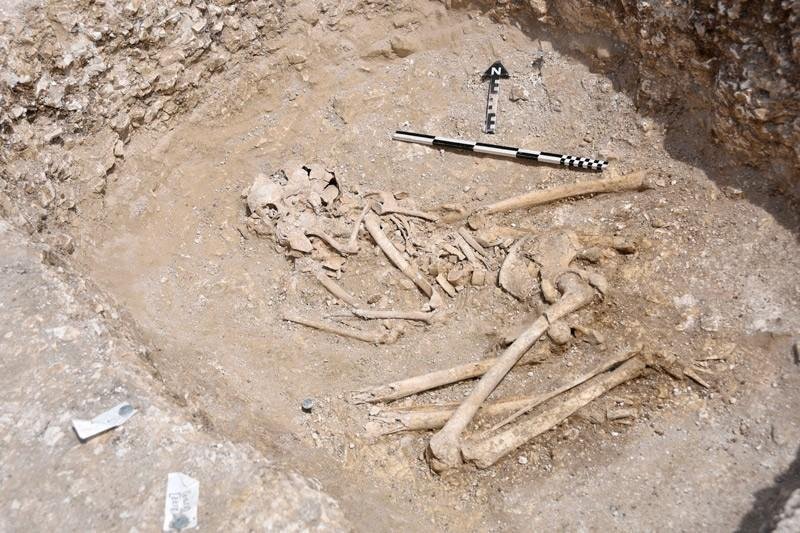
A woman was buried with a number of Roman-style wine vessels. Credit: Bournemouth University Another grave featured two dog burials, significant due to the important role hunting dogs played in Iron Age society and their status as a prized British export for the Roman elite. Despite this, Dr. Russell posits that these dogs might have been sacrificial offerings, given their simultaneous deaths and placement within the grave.
The third grave contained the remains of a man buried in a more traditional Roman manner—flat on his back in a coffin, with numerous iron nails discovered alongside his remains. This suggests that some burial customs were shifting towards Roman practices over time.
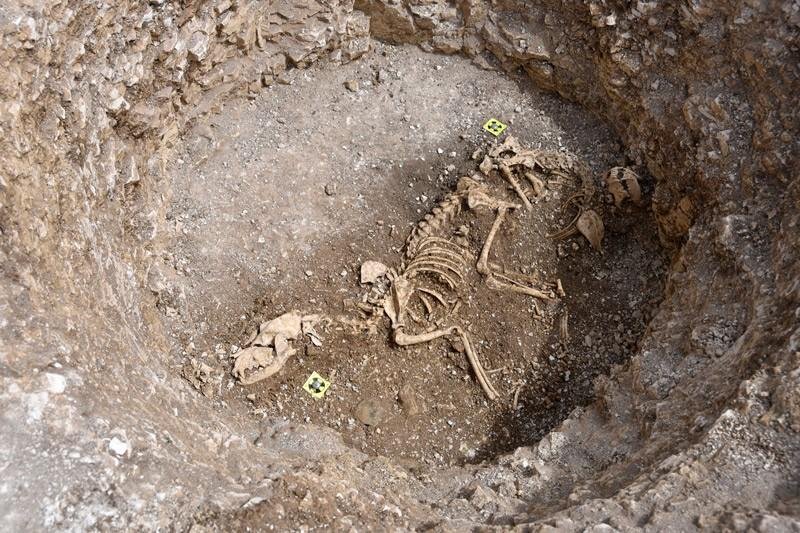
Two hunting dogs, likely sacrificed despite their status as a valuable British export for the Romans. Credit: Bournemouth University Paul Cheetham, co-director of the project, elaborated on this point, noting that the more Roman-style graves from the second and third centuries CE were relatively sparse in artifacts. “This suggests that although burial customs were changing over time, the farmers of this area, despite being part of a wider empire, weren’t benefiting much from belonging to the Roman world and were maintaining more native cultural patterns,” Cheetham said.
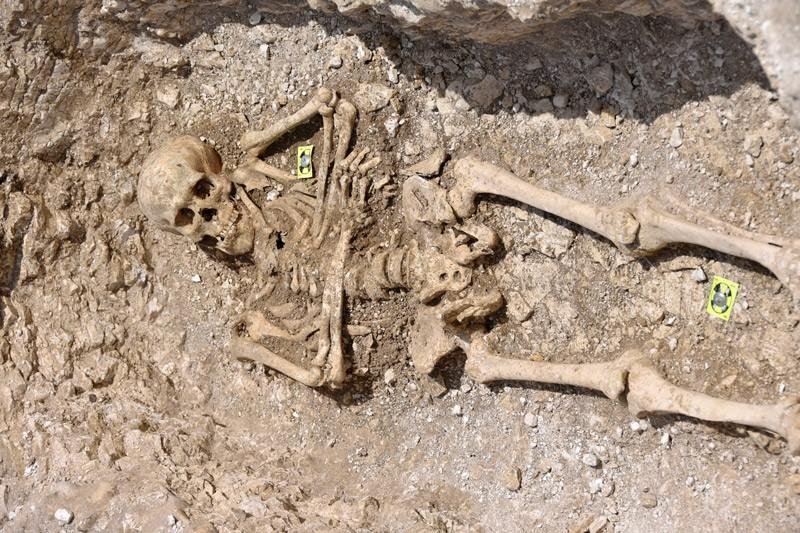
A typical roman style burial. Credit: Bournemouth University The Roman-style wine vessels found at the site, while appearing Roman, were actually local copies manufactured in nearby Poole harbor. “They are made from a local fabric by a local potter, but they are very much in a Roman style and not something we had found in local traditions before,” explained Kerry Barras, a visiting researcher at BU and Finds Manager at the site. “So they are taking their designs and copying them. They are mixing their traditions, taking on some of the Roman culture and influence, but they were found by a crouched burial which is not Roman and a part of more regional British tribal culture.”
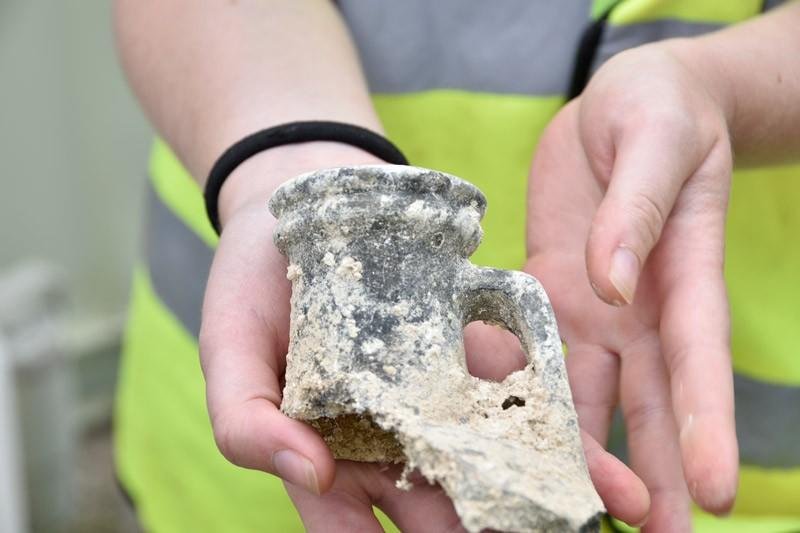
Many artifacts were found to be in a Mediterranean style but they were made locally in Poole harbour. Credit: Bournemouth University The excavation at Winterborne Kingston will continue for another two weeks before the site is returned to farming. All human remains and artifacts will undergo further analysis at Bournemouth University to gain a deeper understanding of life in early Roman Dorset. Dr. Russell and his team of staff and students plan to return next summer to conduct additional excavations on the surrounding land.
Sorry, there were no replies found.
Log in to reply.
